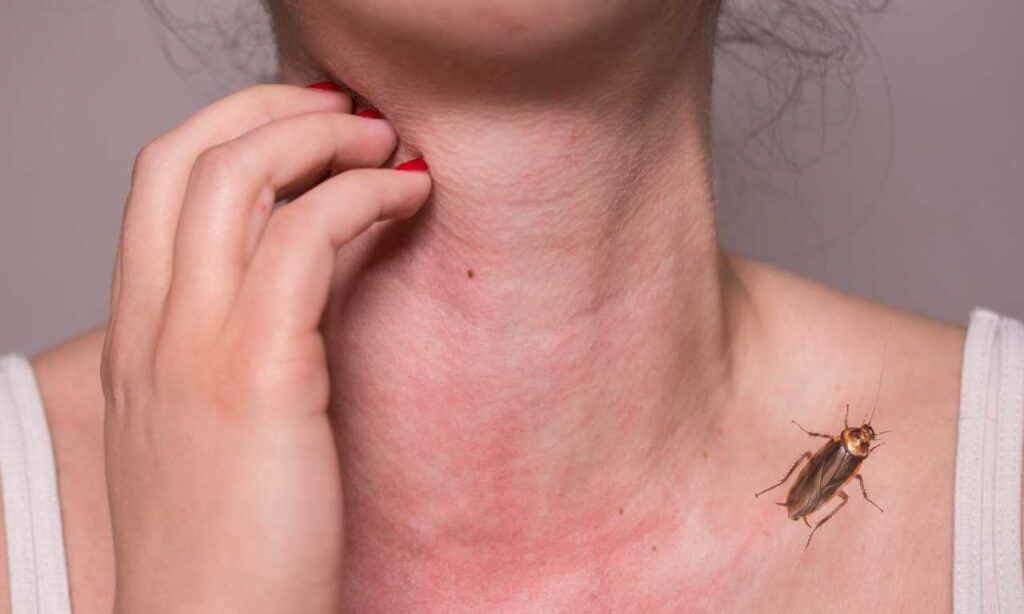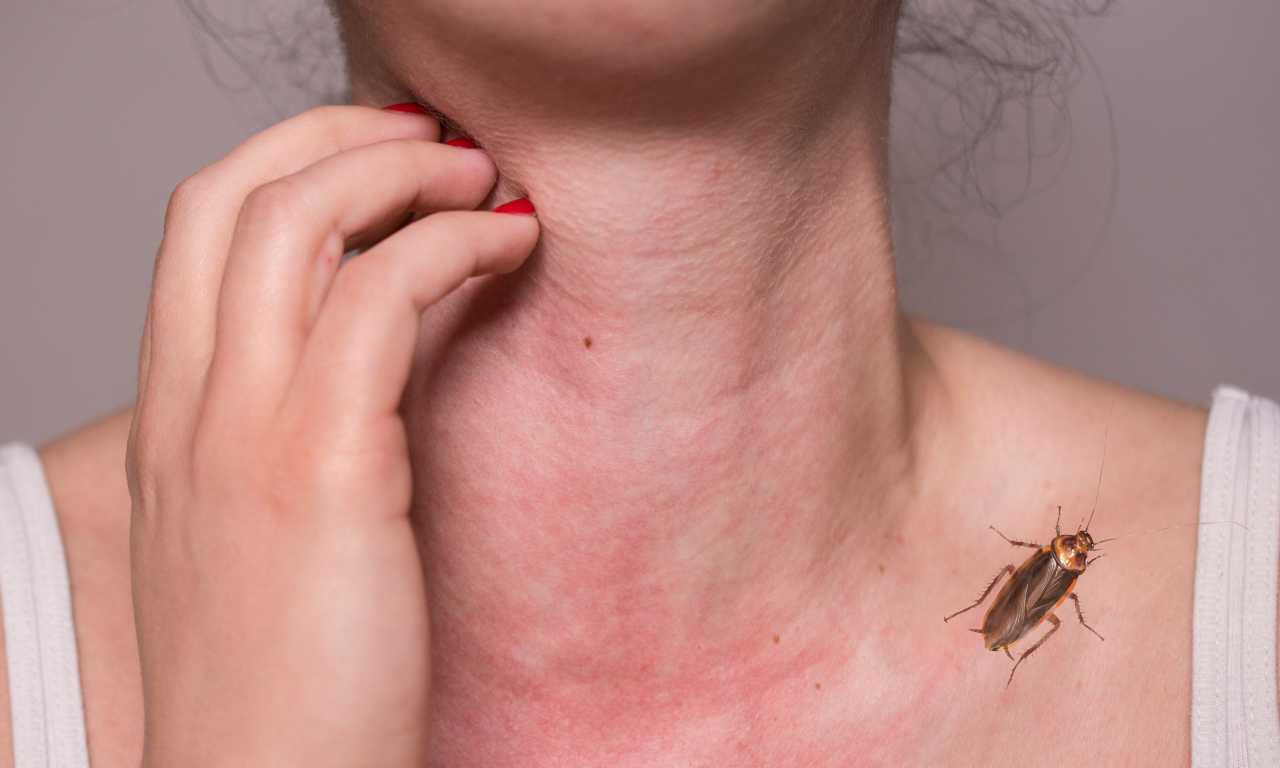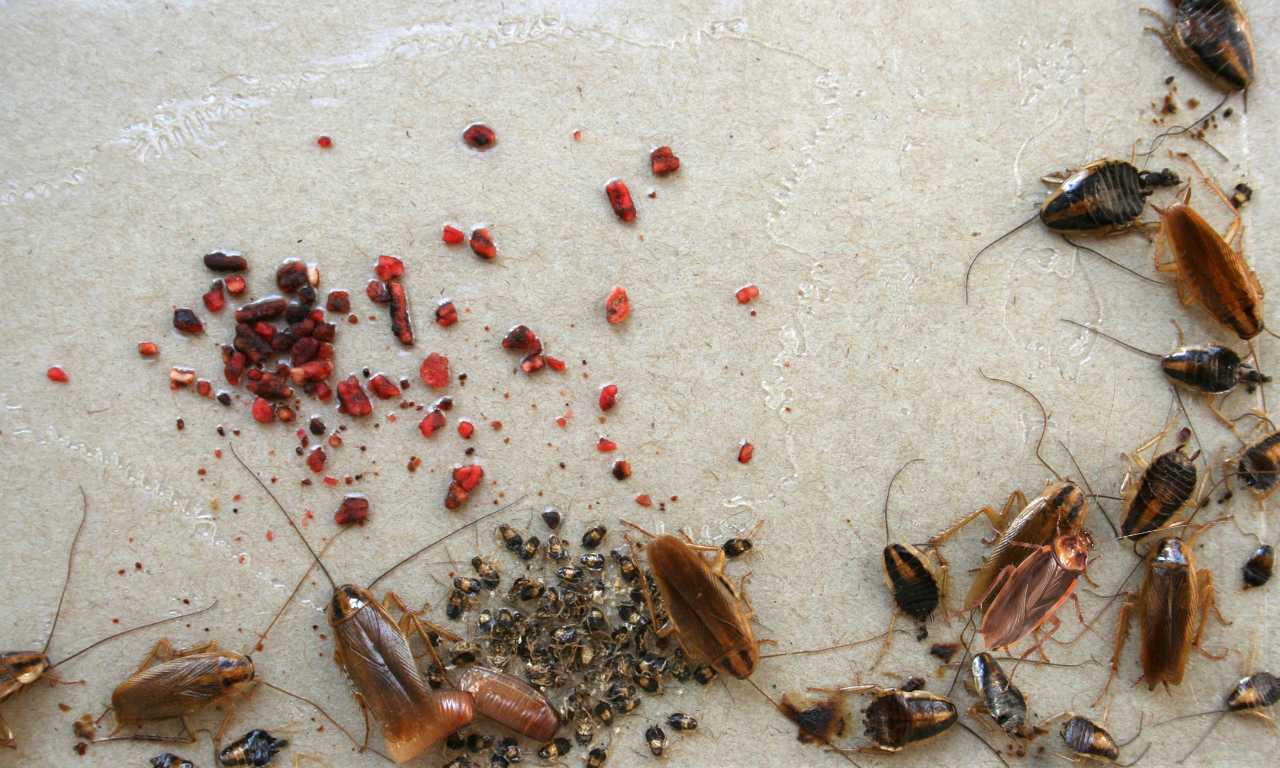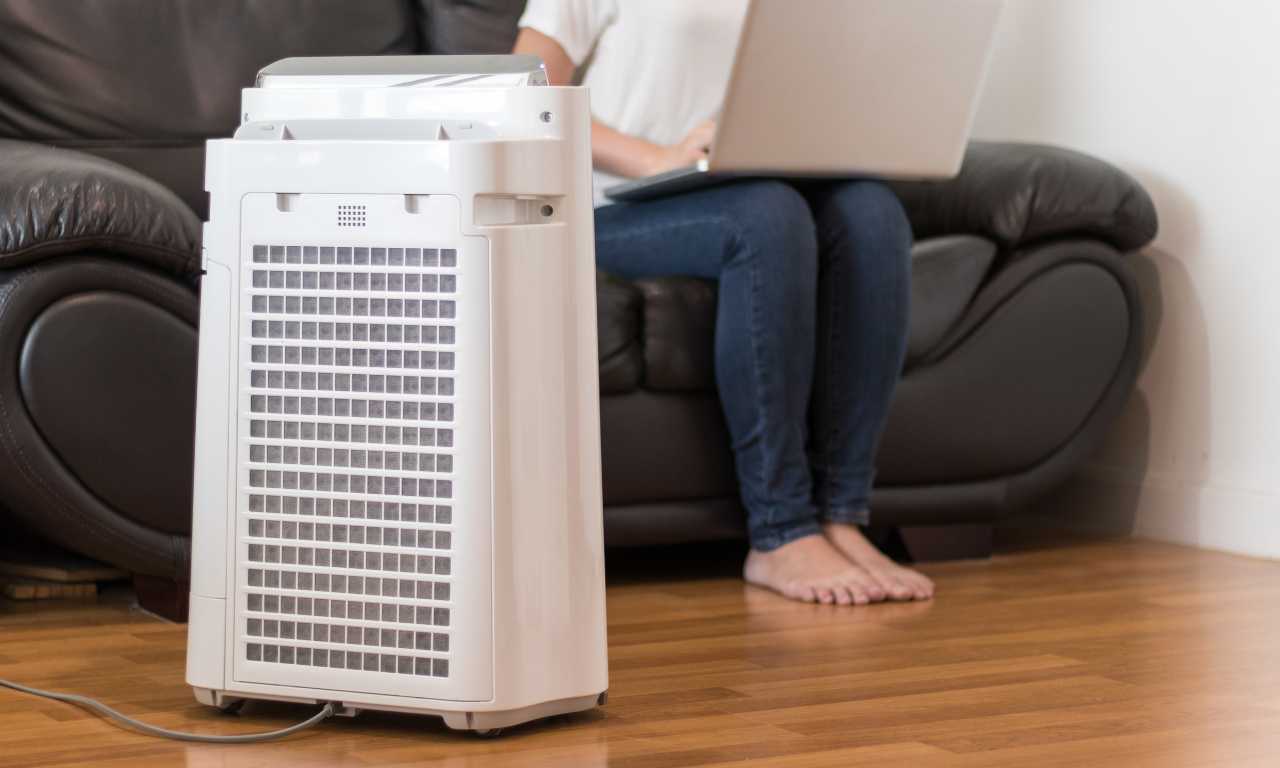
 Cockroach allergens are a major concern for many people, particularly those living in urban areas or older homes where cockroach populations are high.
Cockroach allergens are a major concern for many people, particularly those living in urban areas or older homes where cockroach populations are high.
These allergens can cause a variety of allergic reactions, including asthma, eczema, and rhinitis. Inhaling or coming into contact with cockroach allergens can trigger allergic reactions in sensitive individuals, and exposure to cockroach allergens can also aggravate pre-existing asthma symptoms.
Why Do You Get Cockroach Allergy?
Cockroaches produce a variety of proteins that can become allergens, including those found in their droppings, body parts, and secretions. These proteins can become airborne and can be inhaled, leading to an allergic reaction. When a person is exposed to cockroach allergens, their immune system mistakes them as harmful and produces antibodies to fight them.
This leads to the release of histamine and other chemicals, which cause symptoms such as sneezing, itching, and difficulty breathing. Some people may also develop an allergic skin rash or eczema after coming into contact with cockroach allergens.
People who have pre-existing asthma or other respiratory conditions may have a greater risk of developing an allergy to cockroaches. This is because their condition makes them more susceptible to the harmful effects of allergens. Additionally, people who live in areas with high cockroach populations, such as urban areas or older homes, may have a higher risk of developing an allergy to cockroaches.
This is because they are more likely to be exposed to higher levels of cockroach allergens. The cockroach allergens can accumulate in dust and on surfaces, and can be found in the air, making it harder to avoid exposure. Some studies also suggest that early exposure to cockroach allergens may increase the risk of developing allergies later in life.
Not only cockroach droppings, body parts, and secretions can cause allergies but also their saliva, and even the smell of cockroaches can cause allergic reactions in some people. This means that even if you don’t see cockroaches around, the smell of them in the air can cause reactions.
The effects of cockroach allergens can be severe, particularly for those with pre-existing asthma or other respiratory conditions. Exposure to cockroach allergens can lead to an increase in asthma symptoms, such as wheezing, coughing, and difficulty breathing. In some cases, exposure to cockroach allergens can even lead to asthma attacks. Additionally, eczema and rhinitis symptoms can also worsen with exposure to cockroach allergens.
To reduce exposure to cockroach allergens, it is important to keep living areas clean and free of cockroaches. This can be done by maintaining good hygiene, using cockroach baits, and sealing cracks and crevices to prevent cockroaches from entering the home. Regular vacuuming and dusting can also help to remove cockroach allergens from surfaces and dust. It’s also important to fix any leaks, as cockroaches are attracted to moist environments.
If you suspect that you have an allergy to cockroaches, it’s important to see an allergist for testing and treatment. Treatment options can include medications such as antihistamines and inhaled steroids, as well as allergen immunotherapy, which helps to reduce sensitivity to the allergen over time. Additionally, environmental control measures, such as keeping living areas clean and free of cockroaches, can also help reduce exposure to cockroach allergens and alleviate symptoms.
In summary, cockroach allergens are a serious concern for many people, particularly those living in urban areas or older homes where cockroach populations are high. These allergens can cause a variety of allergic reactions, including asthma, eczema, and rhinitis.
What Happens When You Are Allergic To Cockroaches?
When you are allergic to cockroaches, your immune system reacts to the proteins found in cockroach droppings, body parts, and secretions as if they were harmful invaders. This leads to the production of antibodies that are designed to fight off the perceived threat. When these antibodies come into contact with the cockroach allergens, they trigger the release of histamine and other chemicals that cause an allergic reaction.
Symptoms of a cockroach allergy can vary depending on the individual, but common symptoms include sneezing, itchy eyes and nose, runny nose, and difficulty breathing. These symptoms can be similar to those of hay fever and other types of allergies, making it difficult to diagnose a cockroach allergy without proper testing. In more severe cases, people may experience difficulty breathing, chest tightness, and even asthma attacks.
People who have pre-existing asthma may experience an increase in asthma symptoms such as wheezing, coughing, and difficulty breathing when exposed to cockroach allergens. This is because the allergens can trigger inflammation in the airways, making it difficult for air to flow in and out of the lungs. Asthma symptoms can be particularly severe in people who are allergic to cockroaches, and in some cases, exposure to cockroach allergens can lead to asthma attacks.
In addition to respiratory symptoms, some people may also develop an allergic skin rash or eczema after coming into contact with cockroach allergens. This can happen when the allergens come into contact with the skin, triggering inflammation and itching. People with eczema may also experience a flare-up of their symptoms when exposed to cockroach allergens.
Living with a cockroach allergy can be challenging, as it can greatly impact the daily life of the person suffering from the allergy. It can be difficult to avoid exposure to cockroach allergens, particularly if you live in an area with a high cockroach population. People with a cockroach allergy may also experience difficulty sleeping due to their symptoms and may have to take time off work or school as a result of their allergy.
To diagnose a cockroach allergy, an allergist can perform a skin test or a blood test to detect the presence of antibodies to cockroach allergens. Once a cockroach allergy is diagnosed, the allergist will work with the patient to develop a treatment plan that may include medications such as antihistamines and inhaled steroids, as well as allergen immunotherapy.
To reduce exposure to cockroach allergens, it is important to keep living areas clean and free of cockroaches. This can be done by maintaining good hygiene, using cockroach baits, and sealing cracks and crevices to prevent cockroaches from entering the home. Regular vacuuming and dusting can also help to remove cockroach allergens from surfaces and dust. In addition, fixing leaks and keeping the humidity level low can discourage cockroaches from entering the home.
It’s also important to note that cockroach allergies are common and can be a serious health concern, especially for people with asthma. It’s also important to note that cockroach allergies can be misdiagnosed, so it’s important to see an allergist for proper testing and treatment. If you have cockroach allergies, it’s important to take steps to reduce your exposure to cockroach allergens in order to improve your symptoms and overall health.
In conclusion, cockroach allergies are a common and serious health concern that can greatly impact the daily life of the person suffering from the allergy. Symptoms can include sneezing, itchy eyes and nose, runny nose, and difficulty breathing. People who have pre-existing asthma may experience an increase in asthma symptoms such as wheezing, coughing.
How Many People Are Allergic To Cockroaches?
 It is estimated that a significant number of people are allergic to cockroaches. According to the American College of Allergy, Asthma, and Immunology, cockroaches are one of the most common indoor allergens, and studies have shown that cockroach allergens are present in up to 50% of inner-city homes.
It is estimated that a significant number of people are allergic to cockroaches. According to the American College of Allergy, Asthma, and Immunology, cockroaches are one of the most common indoor allergens, and studies have shown that cockroach allergens are present in up to 50% of inner-city homes.
Research has also shown that cockroach allergies are particularly common in urban areas and among low-income populations. A study conducted by the National Center for Health Research found that cockroach allergies are more prevalent in urban areas, with rates as high as 30% in some cities.
Additionally, a study published in the Journal of Allergy and Clinical Immunology found that low-income populations are more likely to be exposed to cockroach allergens, with up to 80% of homes in some low-income areas testing positive for cockroach allergens.
Cockroach allergies are also more common among certain racial and ethnic groups. According to the American Academy of Allergy, Asthma, and Immunology, African Americans are more likely to have cockroach allergies than other racial groups. This is likely due to a combination of factors, including higher rates of poverty and living in urban areas with high cockroach populations.
The prevalence of cockroach allergies can also vary depending on the specific type of cockroach. The German cockroach is the most common cockroach found in homes and is responsible for most cockroach allergies. The American cockroach is also commonly found in homes and can cause allergies, but it is less common than the German cockroach.
Cockroach allergies can affect people of all ages, but they are particularly common among children. A study published in the Journal of Allergy and Clinical Immunology found that children living in homes with high levels of cockroach allergens were more likely to develop asthma. This is because children are more likely to be exposed to allergens through play and are more likely to have contact with surfaces and dust where allergens can accumulate.
The effects of cockroach allergies can be severe, particularly for those with pre-existing asthma or other respiratory conditions. Exposure to cockroach allergens can lead to an increase in asthma symptoms, such as wheezing, coughing, and difficulty breathing. In some cases, exposure to cockroach allergens can even lead to asthma attacks. Additionally, eczema and rhinitis symptoms can also worsen with exposure to cockroach allergens.
It’s important for people who suspect they have an allergy to cockroaches to see an allergist for testing and treatment. Treatment options can include medications such as antihistamines and inhaled steroids, as well as allergen immunotherapy, which helps to reduce sensitivity to the allergen over time. Environmental control measures, such as keeping living areas clean and free of cockroaches, can also help reduce exposure to cockroach allergens and alleviate symptoms.
In summary, cockroach allergies are a serious concern for many people, particularly those living in urban areas or older homes where cockroach populations are high. A significant number of people are estimated to be allergic to cockroaches, with rates as high as 30% in some cities.
Cockroach allergies are particularly common in urban areas, among low-income populations, and among certain racial and ethnic groups, and are more common among children. The effects of cockroach allergies can be severe, particularly for those with pre-existing asthma or other respiratory conditions. It’s important for people who suspect they have an allergy to cockroaches to see an allergist for testing and treatment, and to take steps to reduce exposure to cockroach allergens in their living environment.
How Do You Get Rid Of Cockroach Allergens?
 Getting rid of cockroach allergens is an important step in reducing exposure to cockroach allergens and alleviating symptoms for people with cockroach allergies. There are several steps that can be taken to effectively remove cockroach allergens from the home and reduce the likelihood of cockroach infestations.
Getting rid of cockroach allergens is an important step in reducing exposure to cockroach allergens and alleviating symptoms for people with cockroach allergies. There are several steps that can be taken to effectively remove cockroach allergens from the home and reduce the likelihood of cockroach infestations.
- Keep the home clean and free of clutter: Cockroaches are attracted to dirty, cluttered environments, so keeping the home clean and free of clutter can help to reduce the likelihood of cockroach infestations. This includes regularly vacuuming and dusting to remove cockroach allergens from surfaces and dust. Cleaning surfaces with a damp cloth or a cleaning solution can also help to remove allergens.
- Seal cracks and crevices: Cockroaches can enter the home through small cracks and crevices, so it’s important to seal these areas to prevent cockroaches from entering the home. This can be done by using caulk or expanding foam to seal gaps around doors and windows, and by repairing any leaks that may be attracting cockroaches.
- Use cockroach baits and traps: Cockroach baits and traps can be used to effectively reduce cockroach populations in the home. Baits are designed to attract cockroaches and contain a poison that will kill them. Traps can also be used to capture cockroaches and reduce their numbers.
- Keep the humidity level low: Cockroaches are attracted to moist environments, so keeping the humidity level low can discourage cockroaches from entering the home. This can be done by using a dehumidifier or by ensuring that bathrooms and kitchens are well-ventilated.
- Use air purifiers: Air purifiers can help to remove cockroach allergens from the air. HEPA (High-Efficiency Particulate Air) filters are particularly effective in trapping allergens and other small particles.
- Professional Pest Control: If you have a severe cockroach infestation, it may be necessary to hire a professional pest control service to eliminate the cockroaches. They are trained and have the expertise and equipment to effectively remove cockroaches from the home.
- Keep pets clean: Pets can bring allergens and pests inside the house, so it’s important to keep them clean and groomed. This includes regularly bathing them and keeping their fur trimmed.
- Regularly wash bedding and other linens: Cockroach allergens can accumulate on bedding and other linens, so it’s important to wash them regularly. Use hot water and detergent and dry them on high heat to kill any cockroaches or their eggs.
- Use allergen covers: Allergen covers can be used to protect against cockroach allergens. These covers are designed to encase mattresses, pillows, and box springs, creating a barrier that prevents cockroach allergens from coming into contact with your skin and breathing passages. This can be particularly helpful for people with severe cockroach allergies. It’s important to note that getting rid of cockroach allergens can be a difficult and ongoing process. Even after taking steps to reduce cockroach populations and remove allergens, it’s still possible for cockroach allergens to linger in the environment. Therefore, it’s important to continue monitoring and taking steps to reduce exposure to cockroach allergens.
- Keep food and garbage sealed: Cockroaches are attracted to food and garbage, so it’s important to keep these items sealed and away from cockroaches. This includes storing food in airtight containers, cleaning up spills and crumbs immediately, and taking out the garbage regularly.
It’s important to note that getting rid of cockroach allergens can be a difficult and ongoing process. Even after taking steps to reduce cockroach populations and remove allergens, it’s still possible for cockroach allergens to linger in the environment. Therefore, it’s important to continue monitoring and taking steps to reduce exposure to cockroach allergens.
Welcome to my blog. I have been doing pest control for years since my house, garden and pets were always attacked by various kinds of pests and as a result I had to know proper pest control techniques that works. In this blog I share all the tips and tricks that I know and I hope you’ll find it helpful.
